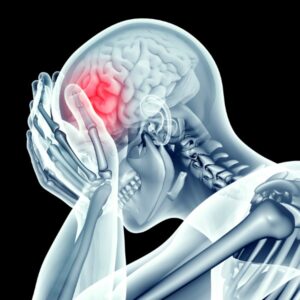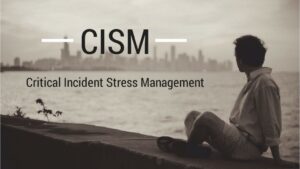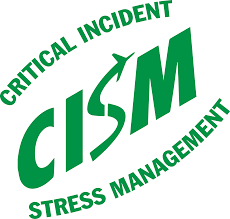The trauma of an event can have a huge impact on the lives of those who experience it. Many people do not know that after critical incident stress, you will need to take care of yourself. After the dust settles, you might find it hard to deal with your own traumatic memories. This blog post is a survival guide for professionals in high-risk occupations. It gives tips to help when you are dealing with bad things in your life. It has ways to cope and stay grounded in your day-to-day life even when you feel stressed about work.
Contents
- 1 What Is Traumatic Critical Incident?
- 1.1 What Is Critical Incident Stress?
- 1.2 Who Is Affected by Critical Incidents?
- 1.3 Common Symptoms Associated with Traumatic Critical Incident
- 1.4 Impact Of Critical Incident Stress On the Brain
- 1.5 Symptoms Of Critical Incident Stress
- 1.6 Examples Of Critical Incident Stress
- 1.7 What Can I Do If I’m Experiencing Symptoms Of Critical Incident Stress?
- 1.8 What Is Critical Incident Debriefing?
- 1.9 Is Critical Incident Debriefing Is Harmful?
- 1.10 What If I’m Afraid To Seek Help?
- 1.11 What is Critical Incident Stress Management (CISM)?
- 1.12 How To Manage Critical Incident Stress
- 1.13 Treatment Options For Critical Incident Stress
- 2 Conclusion
What Is Traumatic Critical Incident?
Traumatic critical incidents are events that have been experienced or witnessed by an individual and caused a significant change in his/her emotional, psychological, physical well-being.
What Is Critical Incident Stress?
Critical Incident Stress is a series of negative psychological and physiological reactions to a traumatic event. It occurs after the person has been exposed to details about the critical incident, or it could also happen when they have witnessed first-hand what happened during an emergency situation.
Who Is Affected by Critical Incidents?
Everyone might get post-traumatic stress disorder after a trauma. But some people are more likely to get it than other people because of their personality and how they cope. It means that if you are not directly involved with the disaster or crisis, there should be immediate intervention. It helps you to avoid PTSD.
Common Symptoms Associated with Traumatic Critical Incident
The symptoms associated with traumatic critical incidents are varied and can differ from person to person. Some of the most common symptoms are as follows:
- Shock or numbing of emotions
- Difficulty concentrating
- Sudden changes in sleeping habits
- Hypervigilance
- Flashbacks or intrusive thoughts about the event
- Avoiding anything that reminds you of the trauma
Impact Of Critical Incident Stress On the Brain
The impact of critical incident stress on the brain can be both short-term and long-term. In the short term. It can lead to increased levels of adrenaline and noradrenaline, which can cause problems such as difficulty sleeping, concentrating, and maintaining attention.
In the long term, it can lead to changes in the way the brain functions, including a reduction in the size of certain areas of the brain. This may have an impact on a person’s memory, emotions, and ability to cope with stressful situations.
Symptoms Of Critical Incident Stress
There are four different responses towards critical stress, such as:
Physical Symptoms 
- Headaches & Migraines
- Insomnia or Nightmares
- Fidgety
- Nervous Energy
- Loss Of Appetite/Nausea/Vomiting
- Eating More And Eating Strange Things.
- Overreaction To Little Things Around You
- Cold Or Flu Symptoms With No Viral Cause
- Unexplained Rashes, Moles, Warts
- Tightness In Chest, Breathing Problems
- Painful Stomach Cramps/Upset Stomach/Churning Stomach
- Feeling Like There’s Something Caught In Your Throat That You Can’t Swallow
- Dizziness
- Feeling Like You’re Going To Pass Out Or Like The World Is Spinning Around You, Blackouts/Missing Time Or Missing Events.
Emotional Symptoms
- Irritability
- Short Fuse
- Anger Problems
- Aggressive Behavior
- Violence
- Sadness
- Depression That Won’t Go Away
- Guilt/Shame
- Feeling Like You Don’t Care About Anything Anymore
- Frustration Or Difficulty Concentrating
- Difficulty Sleeping With A Lot Of Thoughts Going Through Your Head At Night
Cognitive Symptoms 
- Confusion
- Feeling Like You’re In A Fog
- Forgetting Things More Often
- Thoughts Being “Blocked” Where You Can’t Remember What Happens Next Or The Right Word For Something.
- Extreme Anxiety
- Panic
- Fear/Phobia
- Profuse Sweating Even When It’s Cold In The Room Or Outdoors
- Racing Heartbeat
- Palpitations
- High Blood Pressure
- Migraine Headaches
- Chest Pain That Doesn’t Go Away Or Gives You Trouble Breathing.
- Being Hyper-Vigilant All The Time
- Feeling Anxious Most Of The Day And Evening For No Reason
Behavioral Symptoms 
- Withdrawing From Family Members, Friends, Other People In General
- Sleeping In Your Vehicle Or In A Motel To Avoid Going Home
- Continuously Being On Guard For No Reason Alcohol/Drug Use
- Showing Up Unannounced At Work And Not Knowing Why You’re There
- Extremely Busy, Unable To Relax Even When You Want To.
- Preventing Yourself From Having Any Time Alone or Grieving with Family/Friends/Survivors.
Examples Of Critical Incident Stress
There are many examples of critical incidents, such as:
- A natural disaster such as an earthquake, tornado, or hurricane.
- A man-made disaster such as a terrorist attack or bombing.
- An accident, such as a car crash or airplane accident.
- Violence, including physical assault, sexual assault, or domestic violence.
- Death of a loved one, whether expected or unexpected.
- The birth of a critically ill or premature baby.
- Being involved in or witnessing a traumatic event, such as a shooting, robbery, kidnapping, hostage situation, etc.
- Being on the scene of an emergency where people have been injured or killed).
- Working with victims of critical incidents (e.g., first responders/EMTs; mental health professionals; social workers; etc.)
- Surviving a critical incident that another person has experienced.
What Can I Do If I’m Experiencing Symptoms Of Critical Incident Stress?
Here are a few things you can do if you are experiencing the symptoms, such as:
- If you are experiencing any of these symptoms, please seek help from someone who can provide further assistance or advice on how to cope with the situation.
- If someone has been in an accident or feels sick, it is important to remember that not all people will have the same reaction. Some signs may not happen immediately.
- You should also consider seeking professional help through your doctor or another medical provider if you feel it would benefit you in coping with stress following a trauma/incident.
- The most important thing is knowing there are people out there willing and able to help you through this difficult time.
- If your symptoms are interfering with aspects of daily life, it’s important to seek further assistance from a mental health professional or doctor.
What Is Critical Incident Debriefing?
Critical Incident Debriefing is:
- Critical Incident Debriefing (CID) is a process that helps people after they have been through a very difficult event. The CID process helps people to discuss how they feel about the event and lessen the chance of having problems later on.
- It usually occurs within 24-72 hours after the event and involves trained professionals who guide individuals through sharing their thoughts and feelings about what happened.
- The goal of CID is not only to help those directly affected by the critical incident but also those who were indirectly impacted (e.g., family members, friends).
- CID has been found to be an effective way of helping people cope with traumatic events; however, more research is needed on its long-term effects.
Is Critical Incident Debriefing Is Harmful?
At this time, there is no evidence that suggests CID is harmful to people. The majority of research indicates that CID is an effective way for people to cope with difficult events. However, more research is needed on the long-term effects of CID.
What If I’m Afraid To Seek Help?
There are many reasons why someone may be afraid to seek help after a critical incident, such as:
- “I don’t want anyone to know what happened.”
- “I’ll never recover from this.”
- “I don’t want to feel like I’m crazy.”
- “I don’t want to relive the event.”
- “It’s too soon after the event.”
- “I don’t know who to talk to.”
- “I’m afraid I won’t be able to stop talking about it.”
- “I don’t know what to say.”
If you are experiencing any of these fears, please seek help from someone who can provide further assistance or advice on how to cope with the situation.
What is Critical Incident Stress Management (CISM)?
Critical Incident Stress Management is a very effective method, it works in many ways such as:
- Critical Incident Stress Management (CISM) is a method of helping the people involved in the aftermath of stressful events like accidents or crimes.
- This approach can be used to help families, friends, communities, etc. deal with the stress after someone is exposed to trauma like violence, death, abuse, or natural disasters.
- People who are exposed to these types of events may develop Post Traumatic Stress Disorder (PTSD), or they might show signs of depression.
- Some people develop problems sleeping or experience flashbacks about what they’ve seen – all of which keep them from moving on with their lives normally.
- The goal of CISM is to help people process what happened so they can move on with their own lives.
- They work with people who experienced stress and their family members to help them get better. They teach them how to communicate better and how to make relationships healthy again.
Critical Incident Stress Management is stressful. It is offered in many organizations such as the police, hospital, school, or fire department. The people who do CISM are called “professionals.” They offer it to people in organizations like these. There are also private practitioners who offer CISM.
How To Manage Critical Incident Stress
There are a few things that people can do to manage critical incident stress, such as:
- Talk about what happened with someone who will listen and be supportive.
- Stay connected to friends and family members.
- Get regular exercise.
- Avoid alcohol and drugs.
- Seek professional help if symptoms continue or worsen.
If you are experiencing any of these symptoms, please seek help from someone who can provide further assistance or advice on how to cope with the situation.
Treatment Options For Critical Incident Stress
There are several treatment options for critical incident stress, such as:
- Individual Therapy
- Group Therapy
- Family or Couples Counseling
- Self-help Resources (e.g., books, online courses)
- Medication Management
Individual Therapy
Individual therapy can help Police Officers to cope with strong emotions. They often have a hard time after a traumatic experience. This therapy is helpful because you can talk about your feelings outside of work. You don’t have to worry about negative consequences if you do it without talking about work.
Individual therapy can be very helpful for people. It can help you with feelings that are still there even after difficult things happen. You will learn skills for managing your feelings and thoughts when they arise (even weeks or months later) so that you continue to feel safe and grounded.
Group Therapy
Although there are many theories about the benefits of group therapy for critical incident stress, the most common theory is that individuals will grow stronger by working within a system.
The method of using a “therapeutic” group context to help people manage their reactions to traumatic events has been around for centuries.
At its core, this process or approach rests on two assumptions:
- Groups provide resources not otherwise available in an individual therapeutic relationship and
- People can be helped through supportive interaction with others who have experienced similar life experiences.
While these notions may seem obvious to some, they remain underdeveloped in most modern-day mental health practices.
Family Counseling
Critical Incident Stress Management (CISM) helps all involved process what happened so everyone can move forward together again. Everyone reacts differently after experiencing something stressful like an accident or violent crime, but there are common symptoms that affect many people.
- Sleep Disruptions – Sleeping problems are very common, especially if someone saw something violent happen or heard bad news about someone else. People may not be able to sleep at night or they might have nightmares.
- Flashbacks or Disturbing Thoughts – These are called intrusive thoughts and happen when a person is reminded of the event but doesn’t want to think about it. It can feel like the trauma is happening all over again which makes it hard to function normally.
- Physical Symptoms – People may have pain from injuries, headaches, or stomach aches because of their stress.
A counselor can help a person understand what happened and figure out how to resolve problems that keep him/her from moving on with life. If people are not helped, they can get worse. Moreover, it can lead to drug or alcohol abuse, self-hatred, even suicide risk. Family counseling helps everyone involved process these feelings so the whole family unit can heal.
Self-help Resources
Self-help resources are tools to help people who experienced a traumatic event recover. These self-help books, DVDs, and other materials can be helpful in dealing with the aftermath of exposure to violence, death, or other stressful events. Instructions tell people how to manage their reactions so they don’t develop problems like PTSD. Sometimes, memories get put away and you need to remember them again. It is called “repression”. When you read or watch the memory again it might make you think about what happened.
The goal of using self-help resources is not to solve all problems, but rather to learn how to deal with the events, even if they don’t want to talk about them yet. When people are ready, certain types of counseling can also be helpful in addition to self-help materials. Self-help Resources are tools that can help manage the symptoms until someone feels comfortable discussing what happened.
Medication Management
Medication management helps people with PTSD to feel more calm and relaxed so they can continue therapy. If you are taking other medicines, it’s important to tell the therapist so they can help you.
Doctors may prescribe drugs like antidepressants or anti-anxiety medications at first. These medications can take a few weeks to start working, but once they do, most people don’t experience as much anxiety or stress as before. Many people who have PTSD find it helpful to talk about their feelings with a therapist. But many also need help with medication management. A therapist can help them with both these things. This is often very helpful for them. Talk therapy is an essential part of mental health treatment. However, you should never stop taking the medication without first discussing it with your doctor.
Conclusion
Critical Incident Stress is a real problem for first responders, military veterans, and others in high-stress occupations. When it comes to PTSD, the effects are lifelong, but there is hope with therapeutic interventions that can help people recover from their trauma.
For more information, please contact MantraCare. Stress can have both physical and mental effects on the body, leading to negative consequences such as anxiety, depression, and even physical illnesses. If you have any queries regarding Online Stress Counseling experienced therapists at MantraCare can help: Book a trial Stress therapy session


















